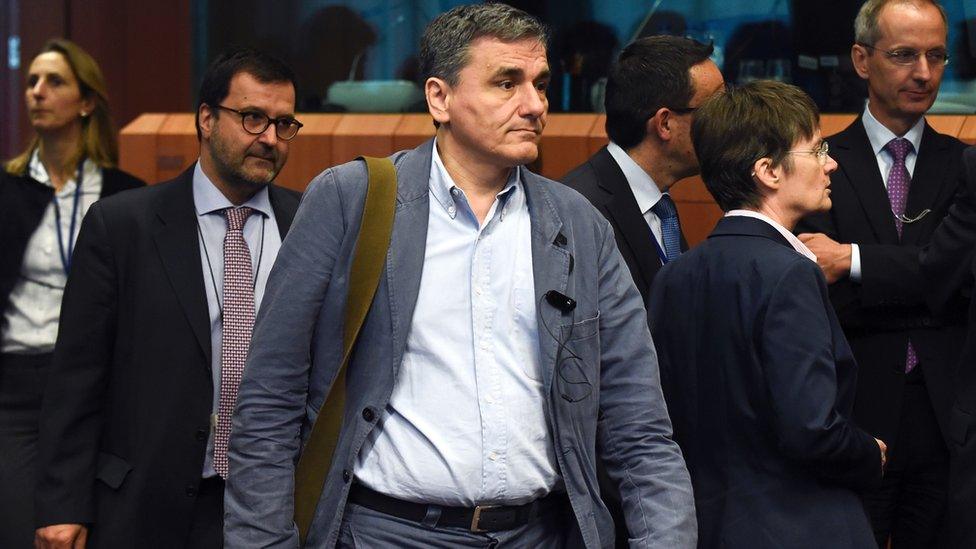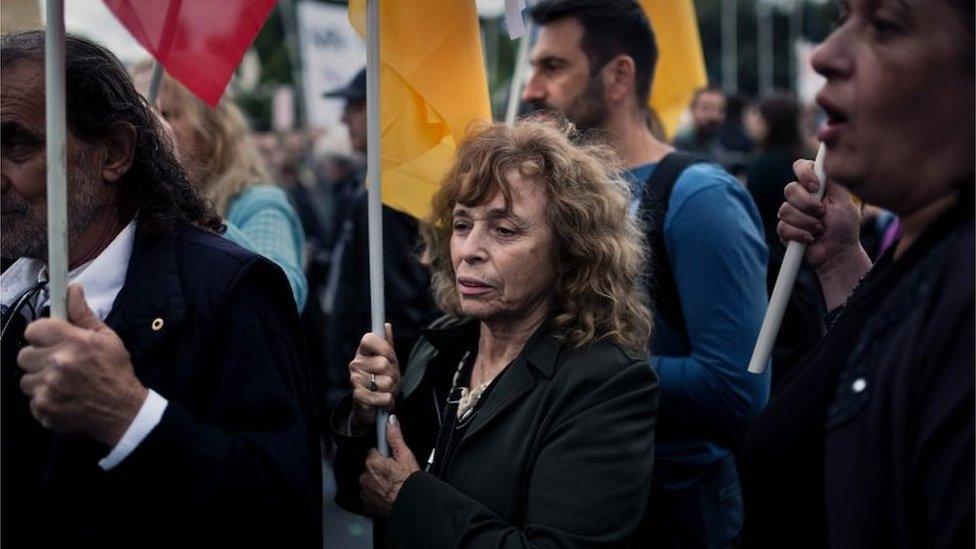Greece bailout: Eurozone deal unlocks €10.3bn
- Published

Greek Finance Minister Euclid Tsakalotos took part in 11-hour talks in Brussels
Greece has agreed a deal to unlock a further 10.3bn euros ($11.5bn; £7.8bn) in loans from its international creditors, after talks in Brussels.
Eurozone finance ministers also agreed on debt relief for Greece, extending the repayment period and capping interest rates.
Greece needed this tranche of cash to meet debt repayments due in July.
The Greek government owes its creditors more than €300bn - about 180% of its annual economic output (GDP).
'Breakthrough'
The International Monetary Fund (IMF) has been at odds with the Eurogroup of eurozone finance ministers for months over the issue of debt relief for Greece.
The IMF considers debt relief essential, but Germany in particular was opposed.
Now that a deal has been reached, the IMF will consider contributing to the bailout.
The 19 ministers said the deal had been made possible by Greece's economic reforms and called it a "breakthrough".
Wednesday's deal, external does not reduce the amount Greece will have to repay. Instead, debt relief will be phased in from 2018, after Germany's general election late next year. As such, the deal is being seen by many as a compromise intended to buy time.
Will the deal change anything?
Greece's debt jargon explained
How bad are things for the people of Greece?
How has austerity worked out for eurozone countries?
"We achieved a major breakthrough on Greece which enables us to enter a new phase in the Greek financial assistance programme," Eurogroup President Jeroen Dijsselbloem told reporters early on Wednesday.
He said the package of debt measures would be "phased in progressively".
This review was the first under Greece's third eurozone bailout, secured in August last year, after which Prime Minister Alexis Tsipras called a snap election.
The move came two days after the Greek parliament approved another round of spending cuts and tax increases demanded by its international creditors.

There were protesters outside Greece's parliament as it approved the austerity budget on Sunday
The bill also created a state privatisation fund requested by eurozone finance ministers.
Opponents of the measures demonstrated outside parliament on Sunday.
The Greek government, led by the leftist Syriza coalition, agreed to a third bailout worth €86bn (£67bn; $96bn) last year.
The Washington-based IMF will still have to give final approval at board level to the fund's continued participation in the Greek bailout.
The organisation says Greek public debt is unsustainable at current levels of about 180% of Greece's gross domestic product (GDP).
IMF European Director Poul M Thomsen said: "We welcome that it is recognised that Greece needs debt relief to make that debt sustainable and it can't do it on its own."